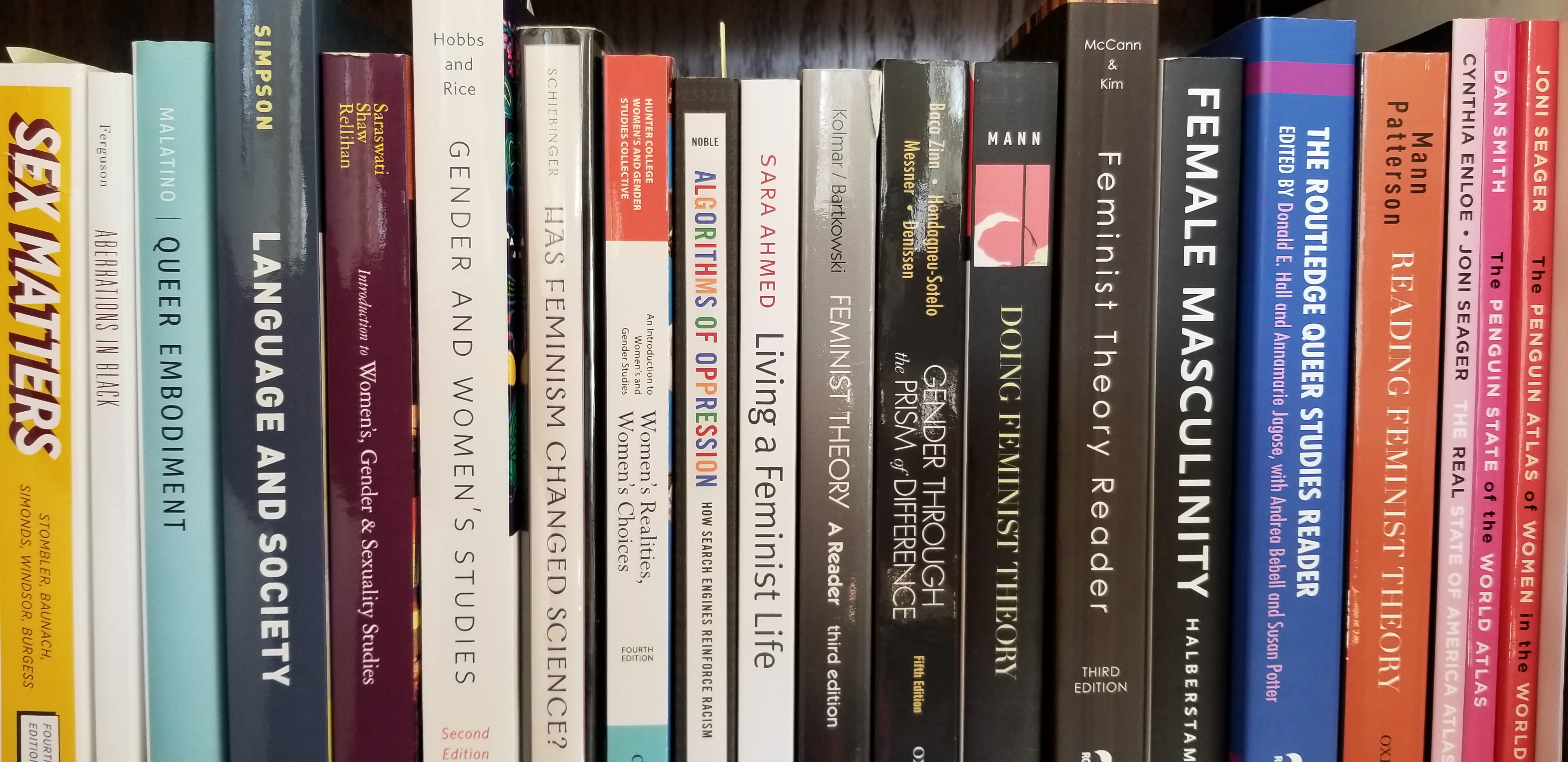- Teacher: David Nieslanik
Lewis & Clark Moodle
Search results: 626
- Teacher: David Nieslanik
- Teacher: David Nieslanik
- Teacher: David Nieslanik
leaders have strong family and community
relationships. This course defines family and
community engagement for inclusive schools,
identifies the critical stakeholders, and develops
inclusive engagement and collaborative strategies.
District demographic data and needs assessments
are used for developing family and community
engagement plans while taking into account
categories of diversity (cultural, ethnic, racial,
economic, ability). The course includes
discussions of successful family and community
engagement models.
- Teacher: David Nieslanik
- Teacher: Dawn Montgomery
- Teacher: Matsya Siosal
- Teacher: Dawn Montgomery
school and district culture where each and every
child is a valued and fundamental member and
participant in classrooms and the community. This
course will address how disability is socially
constructed, and how assumptions about a student's
perceived ability can be reinforced by
exclusionary school and district practices. This
course will provide opportunities for
administrators to use current, relevant research
to increase their understanding of leadership
practices that foster an inclusive school culture
for students with Special Education and TAG
designations, as well as developing and supporting
students in need of 504 plans. Additionally,
students in this class will develop the knowledge
and skills to enact high leverage practices in the
areas of effective collaboration and
communication, assessment and accountability,
social, emotional, and behavior supports,
instruction, program/service support, and
supervision and legal requirements.
- Teacher: Shava Feinstein
- Teacher: Joel Hoff
have focused mainly on reacting to specific
student misbehavior by implementing
punishment-based strategies. Research during the
past 20 years has shown that school-wide behavior
systems that are positively focused on desired
behaviors can result in a substantive lifestyle
impact for all members of a school community.
Additionally, these school wide initiatives must
be supported by district-wide systems of
multi-tiered interventions and equitable policies
that focus on reducing exclusionary discipline,
increasing attendance, and sustaining positive,
inclusive, and hate-free school and district
cultures. This course will examine the
systems-based approach for implementing culturally
proficient, multi-tiered, school-wide behavior
supports, and the critical role that school
leaders have in building positive learning
environments for each student.
- Teacher: Joel Hoff
- Teacher: Stephen Warner
- Teacher: Sue Feldman
- Teacher: Frances Lessman
- Teacher: Mollie Galloway
- Teacher: Mollie Galloway
- Teacher: Mollie Galloway
- Teacher: Mollie Galloway
- Teacher: Mollie Galloway
- Teacher: Alexa Weinstein
- Teacher: Mollie Galloway
- Teacher: Mollie Galloway
- Teacher: John Lenssen
- Teacher: Kimberly Campbell
- Teacher: Liza Finkel
- Teacher: Lisa Lavelle
- Teacher: Patricia Palczewska
- Teacher: Amy Turnbull
- Teacher: Dyan Watson
- Teacher: Rebecca Lingafelter
communication, creative expression, and
audio-visual presentation and production. Students
will apply these practices in a series of
exercises focused on individual and group
communication, developing the ability to employ
entrepreneurial thinking and principles to
communicate innovative ideas to a variety of
audiences. Projects include public speaking
exercises, written and oral presentations tailored
to different audiences, and audio-visual
advertising and promotional content production.
Case studies will be used to examine successful
marketing campaigns for innovative products and
services as well as alternative strategies and
failures. We will emphasize habits and barriers to
effective communication, strategies that promote
creative expression, and how entrepreneurial
methods empower successful messaging.
- Teacher: Bryan Sebok
- Teacher: Bryan Sebok
- Teacher: Bryan Sebok

- Teacher: Bryan Sebok
discovery and engineering innovation. Experience
in mutualistic teaming, technology transfer,
product development, and marketing; opportunities
to learn and apply methods inherent in effectual
entrepreneurial activities. Team-based laboratory
projects focus on the process of technology
transfer (utilizing scientific research in
commercial product development).
- Teacher: Charis Asante-Agyei

activities, students learn about the parallel and
synergistic processes of scientific discovery and
engineering innovation. Open-ended projects give
students experience in mutualistic teaming,
technology transfer, product development, and
marketing, as well as opportunities to learn and
apply methods inherent in effectual
entrepreneurial activities. Team-based laboratory
projects focus on the process of technology
transfer (utilizing scientific research in
commercial product development).
- Teacher: Kellar Autumn
common themes and patterns of influence in
British, American, or international literature by
women, or on close scrutiny of two or more
authors.
- Teacher: Andrea Hibbard
- Teacher: Andrea Hibbard
- Teacher: James Proctor
- Teacher: Jessica Kleiss
- Teacher: James Proctor
- Teacher: Jessica Kleiss
- Teacher: James Proctor
Environmental Studies Program as preparation for
upper-division work by majors and minors. Emphasis
on formulation, practice, and communication of
research. Skills span full range of allied fields,
including descriptive and inferential statistics,
geographic information systems, survey and
interview techniques, qualitative data analysis,
and bibliographic research. Lectures, individual
and small-group assignments, and course project.
Accompanying lab provides opportunity for students
to build analytical skills via real-world
research.
- Teacher: James Proctor
Development of research and analytical skills in environmental studies as preparation for upper-division work by majors and minors. Emphasis on formulation, practice, and communication of research. Skills span full range of allied fields, including descriptive and inferential statistics, geographic information systems, survey and interview techniques, qualitative data analysis, and bibliographic research. Lectures, individual and small-group assignments, and course projects. Accompanying lab provides opportunity for students to build analytical skills via real-world research projects. Prospective majors develop concentrations as a central activity in 220.
- Teacher: James Proctor
- Teacher: Jessica Kleiss
- Teacher: James Proctor
- Teacher: Elizabeth Safran
- Teacher: Curtis Hall
- Teacher: Jessica Kleiss
- Teacher: Elizabeth Safran
- Teacher: James Proctor
- Teacher: James Proctor
- Teacher: Elizabeth Safran
- Teacher: Jessica Kleiss
environmental scholarship to people in a variety
of settings. Identification and finalization of
engagement opportunities; development of
communication, cultural competency, and related
skills; reflection on engagement experiences; and
authoring and sharing of outcomes. Engagement
projects build on partnerships with Portland-area
organizations.
- Teacher: Alana Rader
environmental scholarship to people in a variety
of settings. Identification and finalization of
engagement opportunities; development of
communication, cultural competency, and related
skills; reflection on engagement experiences; and
authoring and sharing of outcomes. Engagement
projects build on partnerships with Portland-area
organizations.
- Teacher: Alana Rader
- Teacher: James Proctor
- Teacher: Alana Rader
- Teacher: James Proctor
- Teacher: James Proctor
- Teacher: Jessica Kleiss
- Teacher: Laura Mundt
- Teacher: James Proctor
- Teacher: Elizabeth Safran
- Teacher: Kellen Copeland
- Teacher: Rosie Goity
- Teacher: Laura Mundt
- Teacher: James Proctor
- Teacher: Elizabeth Safran
environmental scholarship to people in a variety
of settings. Identification and finalization of
engagement opportunities; development of
communication, cultural competency, and related
skills; reflection on engagement experiences; and
authoring and sharing of outcomes. Engagement
projects build on partnerships with Portland-area
organizations.
- Teacher: James Proctor
- Teacher: James Proctor
- Teacher: Shelly Reggiani
- Teacher: Erin Ocon
- Teacher: Shelly Reggiani
- Teacher: Shane Burchell
- Teacher: Shane Burchell
- Teacher: Shane Burchell
- Teacher: Erin Ocon
- Teacher: Shane Burchell
social, and political characteristics of bilingualism and biculturalism in the United States and abroad. ESOL/bilingual teaching is considered in light of laws, research findings, and second-language acquisition theory. Ensures
that educators are not only able to plan and implement programs optimal learning of all students, but also gives educators the tools to advocate for equity in their schools and school communities.
- Teacher: Shane Burchell
- Teacher: Alejandra Favela
- Teacher: Alejandra Favela
- Teacher: Alejandra Favela
- Teacher: Wei-Wei Lou
- Teacher: Erin Ocon
- Teacher: Danica Jensen Weiner
- Teacher: Alejandra Favela
- Teacher: Danica Jensen Weiner
- Teacher: Sarika Mosley
- Teacher: Alejandra Favela
- Teacher: Danica Jensen Weiner
- Teacher: Sarika Mosley
- Teacher: Miriam Alsuhaimi
- Teacher: Wei-Wei Lou
- Teacher: Erin Ocon
- Teacher: Shane Burchell
- Teacher: Shane Burchell
- Teacher: Alejandra Favela
- Teacher: Erin Ocon
- Teacher: Shelly Reggiani
- Teacher: Shane Burchell
- Teacher: Shelly Reggiani
- Teacher: Shane Burchell
- Teacher: Nicole Hilton
- Teacher: Erin Ocon
- Teacher: Maureen Ray
- Teacher: Amber Tatge
- Teacher: Alejandra Favela
- Teacher: Karina Bruzzese
- Teacher: Erin Ocon
his or her environment. The first part of the
course focuses on cultural factors that influence
learning and their implications for instruction.
The latter part of the course examines the
involvement of significant individuals in a
child's academic programs and explores barriers to
family involvement. Introduces cross-cultural
pre-referral screening tools for gifted and
special-needs English-language learners.
Participants develop strategies for establishing
positive school, family, and community
partnerships and explore tools for combating
racism and bias in schools.
- Teacher: Karina Bruzzese
- Teacher: Alejandra Favela
- Teacher: Andrew Kulak
- Teacher: Leslie Woodhouse
- Teacher: Nicole Hilton
- Teacher: Erin Ocon
- Teacher: Shelly Reggiani
- Teacher: Erin Ocon
- Teacher: Shelly Reggiani
Understanding the student within the context of
his or her environment. The first part of the
course focuses on cultural factors that influence
learning and their implications for instruction.
The latter part of the course examines the
involvement of significant individuals in a
child's academic programs and explores barriers to
family involvement. Introduces cross-cultural
pre-referral screening tools for gifted and
special-needs English-language learners.
Participants develop strategies for establishing
positive school, family, and community
partnerships and explore tools for combating
racism and bias in schools.
- Teacher: Araceli Farias
his or her environment. The first part of the
course focuses on cultural factors that influence
learning and their implications for instruction.
The latter part of the course examines the
involvement of significant individuals in a
child's academic programs and explores barriers to
family involvement. Introduces cross-cultural
pre-referral screening tools for gifted and
special-needs English-language learners.
Participants develop strategies for establishing
positive school, family, and community
partnerships and explore tools for combating
racism and bias in schools.
- Teacher: Karina Bruzzese
- Teacher: Erin Ocon
- Teacher: Shelly Reggiani
Theories of how first and second languages, (written and spoken) are acquired, the importance, of first-language development and its, relationship to the acquisition of other, languages, and the relationship of language to, cognitive development. Understanding of these, issues is used to promote a school environment, that honors diverse perspectives and maximizes, language learning potential and ensures respect, for communities whose languages or varieties of, English differ from standard school English., Required for the Reading Interventionist and ESOL, endorsements. The initial course in the Reading, Interventionist Endorsement sequence and, recommended preparation for other language arts, offerings.
- Teacher: Alejandra Favela
- Teacher: Julie Frank
- Teacher: Erin Ocon
- Teacher: Nicole Hilton
- Teacher: Erin Ocon
Welcome to your program community. This is your communication portal with the Overseas & Off-Campus Programs Department.
- Teacher: Blythe Knott
- Teacher: Nicole Schneider
- Teacher: Kaitlin Sommerfeld
sexuality in connection with race, class, and
ethnicity in the United States. Investigation of
social and cultural ideas about difference and
equality in the past and present. Materials
include literature, film, memoir, poetry, feminist
philosophy, political tracts, and queer theory, as
well as classic and recent scholarly work in
history, sociology, economics, communication,
psychology, and other fields. Topics may include
mass media and consumer culture, work, law and
social policy, family, political activism and
social movements, sexuality and the body, public
health, medical research, violence, and theories
of privilege and oppression.
- Teacher: Andrea Hibbard

sexuality in connection with race, class, and
ethnicity in the United States. Investigation of
social and cultural ideas about difference and
equality in the past and present. Materials
include literature, film, memoir, poetry, feminist
philosophy, political tracts, and queer theory, as
well as classic and recent scholarly work in
history, sociology, economics, communication,
psychology, and other fields. Topics may include
mass media and consumer culture, work, law and
social policy, family, political activism and
social movements, sexuality and the body, public
health, medical research, violence, and theories
of privilege and oppression.
- Teacher: Kimberly Brodkin
- Teacher: Andrea Hibbard

- Teacher: Kimberly Brodkin
- Teacher: Andrea Hibbard
- Teacher: Andrea Hibbard
- Teacher: Andrea Hibbard

- Teacher: Kimberly Brodkin
- Teacher: Kimberly Brodkin
- Teacher: Andrea Hibbard
- Teacher: Kimberly Brodkin
- Teacher: Kimberly Brodkin
